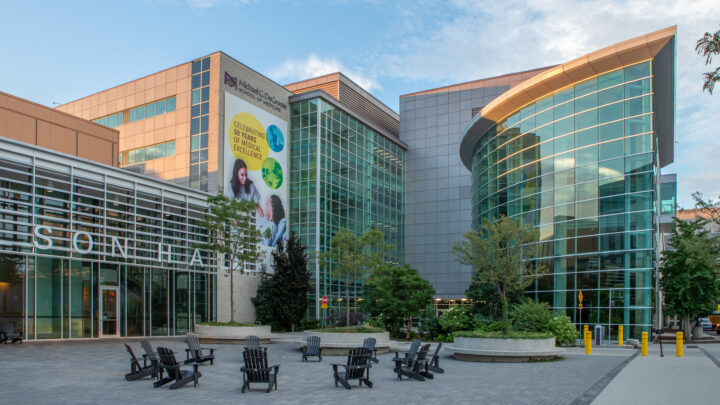Expandable List
Dr. Berg was recruited to McMaster University and Hamilton Health Sciences in 2019 from the Department of Medicine II – Hematology/Oncology at the Goethe University in Frankfurt, Germany where he fulfilled the role of Clinician Scientist and Clinical Hematologist and Medical Oncologist.
As part of Dr. Berg’s recruitment, and through support from the Marta and Owen Boris Foundation, which forms the basis of our research program, Dr. Berg is the Boris Chair in Leukemia and Hematopoietic Stem Cell Translational Research and has developed a leukemia research program with the goal of bridging the gap between the basic lab and the clinic.
The Berg Research Lab is located within the Centre for Discovery in Cancer Research (CDCR) that consists of over 13,000 square feet of lab space containing a stem cell isolation and tissue culture area, live cell bank of human AML and BM samples, imaging microscopes, a drug screening facility and a core flow cytometry/cell sorting unit. Additionally, trainees may gain experience performing in-vivo work within McMaster’s Central Animal Facility Stem Cell Unit, which is equipped to handle highly immune-deficient murine strains.
In the Berg Research Lab, we use state-of-the-art model systems based on murine models as well as primary human material and functional metabolic assays, and global multi-omic approaches to understand the effects of interventions on AML cells. As well, individual projects may also venture into single-cell technologies to assess these processes in individual cells.
To facilitate this work, the Lab collects samples through their Live Cell Bank study, which obtains consented patient samples longitudinally throughout the course of an individual’s disease. This approach will provide an unprecedented understanding of leukemia cells that remain after treatment.
The research conducted within the Berg Lab would not be possible if it were not for the support of the clinical team at Juravinski Cancer Centre, the patients and their families navigating hematological cancers, and the Marta and Owen Boris Foundation that awarded the funding to support our research.

